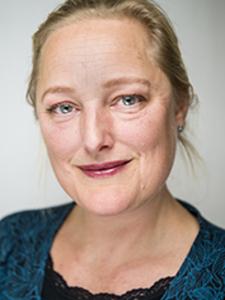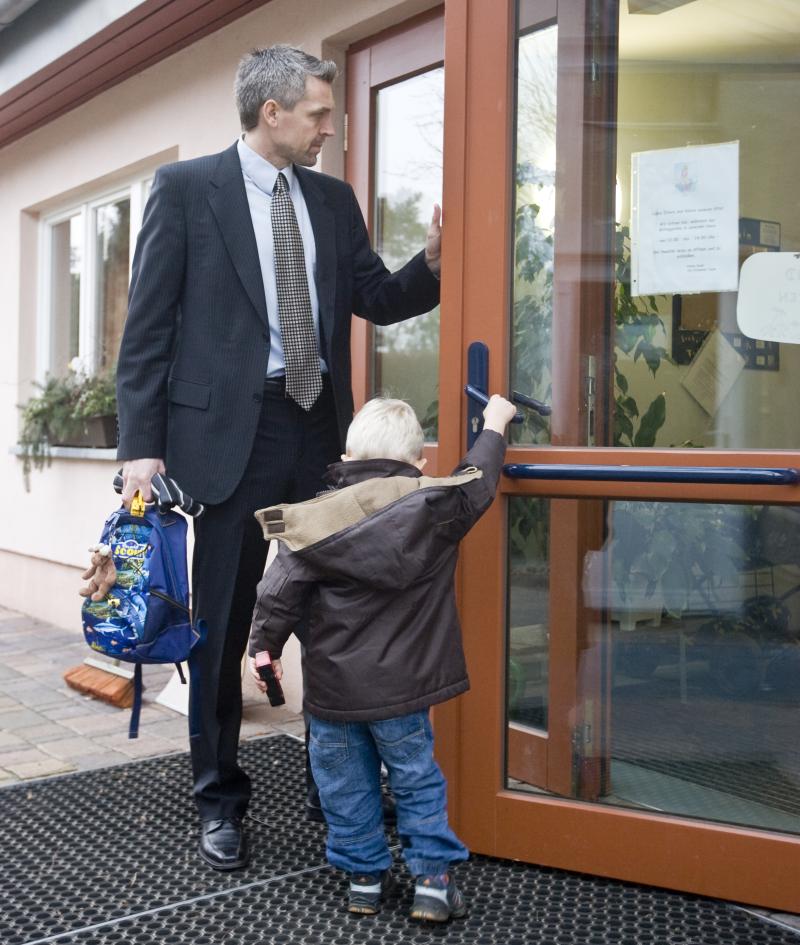“Women are underrepresented in management positions, a pattern that has been stable for a long time.”

This is stated by Inés Hardoy, Pål Schøne and Kjersti Misje Østbakken at Institute for Social Research (ISF). They have analysed how having children affects the likelihood of climbing the ladder of managerial success. One of their findings was that the gap between the spouses in the probability of getting management positions increases as time lapses after the first born. After nine years, the gap reaches five percentage points in favor of the father, according to the study.
Time spent at the workplace is important
In other words, having children seems to affect the likelihood of becoming a leader in opposite ways for mother and father.
“The gender gap in management increases after couples have their first child,” says Schøne.
“The workload distribution among the couples in the home, and the amount of time spent in the workplace and at home, affect both the salary level and the career development. The more you’re away from work the more human capital – a person’s knowledge and skills – deteriorates. This does not only apply to the time spent at work; you also miss out on work training, opportunities for further education and the cultivation of networks.”

The study is based on registry data from Statistics Norway (SSB) that include all Norwegian couples who had their first child in the period between 2005 and 2012. The study follows the couples over a period from two years before they had their first child until nine years after, and looks at how the likelihood of the two of them becoming leaders develops over time.
According to Hardoy the analysis in many ways confirmed what other research on the topic shows.
“In addition to the imbalance among the couples when it comes to the likelihood of becoming managers, we also found that the difference is bigger among couples in which the father has higher education and the mother has not. Interestingly, however, we do not find the same pattern among couples in which the mother has higher education and not the father,” she says.
“In general, the results show that the gender gap in management is smaller among couples in which both mother and father spend approximately the same amount of time at work and at home.”
See also: Rich stay-at-home mums produce the winners of tomorrow
‘Mothering process’ at work

According to researcher at the Work Research Institute at Oslo and Akershus University College of Applied Sciences (HiOA), Selma Therese Lyng, the study further confirms already existing research.
“The findings presented in the study point in the same direction as research from other disciplines than economics. Gender imbalanced distribution of both parental leave and child care responsibility when the children are small are important explanations to gender segregation on the labour market.”
Lyng has done research on mothers and fathers among lawyers and consultants herself. Her research supports Hardoy, Schøne and Østbakken’s finding that the gender gap in career development is big also among couples in which both mother and father have higher education.
The imbalanced gender distribution of parental leave and the unequal sharing of responsibility for the children cause the mothers to fall behind in the work place.
“In my own thesis, where I studied work-family-adjustments among Norwegian parents in competitive intensive careers, I demonstrate how having children can result in gender imbalance in the career development. Even when the parents have the same point of departure, career opportunities and career preferences,” she says.

“In competitive intensive careers, education and top grades are just the ticket of entry, it is the continuous investment in your job along the way that is the decisive factor for your further career opportunities. This also makes your position at work vulnerable. You are never any better than your latest performance, and your career opportunities depend upon your superiors’ assessment of your future potential to invest and perform.”
According to Lyng, this point of departure is the same for men and women.
“But the imbalanced gender distribution of parental leave and the unequal sharing of responsibility for the children cause the mothers to fall behind in the work place. A sort of ‘mothering process’ takes place at work in which women who were considered promising potential leaders before they had children, are re-categorised from the ‘A-team’ to the ‘B-team’,” says Lyng.
“The women thus enter into a self-reinforcing process in which their further career opportunities are no longer as promising. This again has negative effects for their motivation to continue to invest time and energy at work.”
See also: Gender segregated business ownership
Parental leave as measure
For the men who have recently become fathers, having a partner who takes the main responsibility at home is a clear competitive advantage in the work place, according to Lyng.
“The mother’s long parental leave establishes a pattern at home from the very beginning that allows the father to invest in his career while having a ‘ground grew’ at home. When mother’s career opportunities have become more insecure, her career also becomes more negotiable. It is more trouble than it is worth for her to continue to prioritise her career. The so-called ‘two career adjustment’ is difficult to sustain for both mothers and fathers who feel that they are compromising their own parenting ideals.”
When they had children they realised the significance of gender.
According to Lyng, many women said that they had never felt discriminated because of their gender before they became pregnant.
“When they had children, however, they realised the significance of gender. Until then, they thought they would do all the same things as the men.”
According to the authors of the article, Hardøy, Schøne and Østbakken, a more balanced distribution of the parental leave may be a significant measure in order to reduce the gender gap in management positions. The father’s quota is such a measure.
“Our article shows that the period after you have children is an important factor for explaining the gender differences in management positions. Within the field of economics, few similar studies have been carried out in Norway, but we see the same trend in the international literature within the discipline.”
Are you interested in gender research? Sign up for our monthly newsletter here.
Translated by Cathinka Dahl Hambro.
The article "Children and the gender gap in Management" is written by Ines Hardøy, Pål Schøne and Kjersti Misje Østbakken, and was published in Labour Economics earlier this year.
In the article, the authors analyse how having children affects the career development of Norwegian, heterosexual couples in which both parts are in management positions. The authors show that the gender gap increases when these couples have children, and that it increases further if the father’s education is higher than that of the mother.
The article is written as part of the project Gender Segregation in the Labor Market – Comparative Perspectives and Welfare State Challenges, which is funded by the Research
Kilden kjønnsforskning.no collaborates with the research group CORE/NORDICORE at Institute for Social Research. As part of this collaboration, Kilden kjønnsforskning.no receives financial support for writing journalistic articles based on research carried out by CORE or NORDICORE. Kilden kjønnsforskning.no is free to choose which cases to cover, from what angle, and when to publish these cases.



